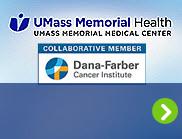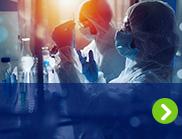High-Risk Breast Cancer
Are you or your family members concerned about being high-risk for breast cancer? Our Comprehensive Breast Center offers the region's only specialized program to help identify and monitor individuals at high risk for developing breast cancer.
Our team of breast cancer specialists can provide you with a thorough evaluation. While the exact causes of breast cancer are unknown, factors such as family history, age and race can influence its occurrence.
The key to successful breast cancer treatment and positive results is early detection. It allows you and your physician to work together and create an appropriate schedule to screen for breast cancer.
High-Risk Breast Cancer Screening Program Services
- Clinical prevention trials
- Genetic testing and education about breast cancer risk
- Personalized risk assessment
- Screening tests
High-Risk Breast Cancer Referrals
Your primary care physician or obstetrician/gynecologist can refer you to our High-Risk Breast Cancer Screening Program. If a family member was recently diagnosed with breast cancer, please call us directly for an appointment, since this puts you at higher risk for the disease.
High-Risk Breast Cancer Assessment Models
There are several methods available to assess risk for women with a family history of breast cancer and other factors that increase the chances of developing the disease. We use the following assessments to develop a personalized plan for prevention and monitoring.
- Gail Model - This assessment tool was developed by the National Cancer Institute and the National Surgical Adjuvant Breast and Bowel Project. It enables health professionals to estimate a woman’s individual risk for breast cancer over a five-year period and over her lifetime. The calculated score can then be used as a guide for establishing personalized prevention and monitoring programs.
- Cash Model - This model relies on data from women who had breast cancer and who have first- or second-degree relatives with breast cancer (e.g., their mother, sister or aunt). Unlike the GAIL model, it combines a woman’s age at diagnosis and that of her paternal relatives with a history of the disease. The woman’s risk can then be calculated based on her age.
- Genetic Counseling and Testing - Although most breast cancers occur in women who do not have a strong family history of the disease, about 5 to 10 percent have a genetic predisposition for breast cancer. Women with a BRCA (breast cancer) gene mutation have up to an 80 percent lifetime risk of developing breast cancer and a 15 to 45 percent risk of ovarian cancer.








 Exclusive Health Care Provider for the Worcester Red Sox.
Exclusive Health Care Provider for the Worcester Red Sox.